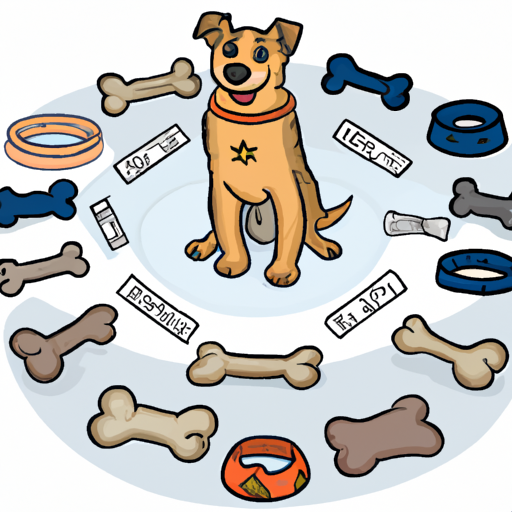As a caregiver, you want nothing but the best for your furry friend. You continually strive to provide the best care, nutrition, and environment for your pup. This guide will help you understand what bones your dog can have and what you should avoid to ensure your pet’s health and happiness.
H2: Understanding the Appeal of Bones
Why do dogs love bones so much? The answer is twofold. First, gnawing on bones can be a great source of mental stimulation for dogs. Secondly, bones are an excellent source of minerals and other nutrients.
- Mental Stimulation: Dogs, particularly puppies and younger dogs, have a lot of energy. Chewing on bones can be a way for them to channel that energy into a productive outlet.
- Nutrition: Bones are a rich source of minerals like calcium and phosphorous. They also contain marrow, which is a good source of fat and nutrients.
H2: Safe Bones for Dogs
Here’s a list of some bones that are generally considered safe for dogs:
- Beef Knuckle Bones: These are large bones that contain marrow. They’re a good choice for larger breeds.
- Chicken Bones: Only when they’re cooked, as raw chicken bones can be a choking hazard.
- Elk or Deer Antlers: These are long-lasting and packed with nutrients.
| Bone Type | Safe for Dogs |
|---|---|
| Beef Knuckle Bones | Yes |
| Chicken Bones (Cooked) | Yes |
| Elk or Deer Antlers | Yes |
H2: Bones to Avoid
On the other hand, there are certain bones you should avoid giving your dog:
- Cooked Bones: When bones are cooked, they can become brittle and easily splinter, posing a choking hazard.
- Pork Bones: These bones are more likely to splinter, even when raw.
- Turkey or Chicken Bones (Raw): These can be a choking hazard for dogs.
H2: Chewing Bones: Best Practices
When giving your dog a bone, remember these tips to ensure your pet’s safety:
- Supervision: Always supervise your dog when they’re chewing on a bone.
- Size Matters: The bone should be large enough so that your dog cannot fit the whole bone in their mouth or swallow the bone whole.
- Discard Old Bones: If a bone has been chewed down into small pieces, discard it to prevent your dog from swallowing it whole.
H2: Frequently Asked Questions (FAQs)
Q: Can I give my dog a bone everyday?
A: It depends on the bone and the dog. Some bones can be harmful if ingested too often.
Q: Are bones good for a dog’s teeth?
A: Yes, chewing on bones can help keep your dog’s teeth clean by removing plaque.
Q: How long should I let my dog chew on a bone?
A: It varies depending on the size of the bone and your dog. Always supervise your dog when they’re chewing on a bone.
In conclusion, bones can be a great treat for your dog, providing mental stimulation and nutrients. However, as a responsible caregiver, it’s important to understand which bones are safe and how to properly supervise your pet while they enjoy this treat.



